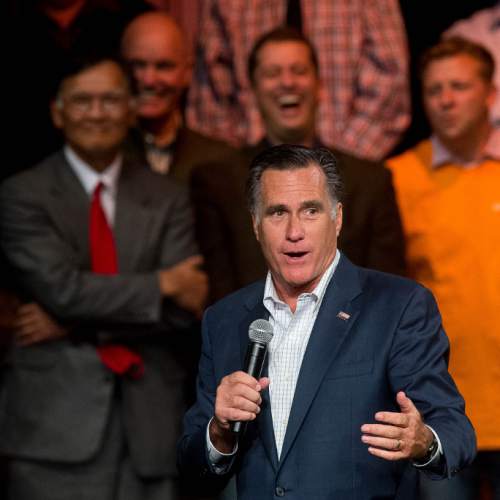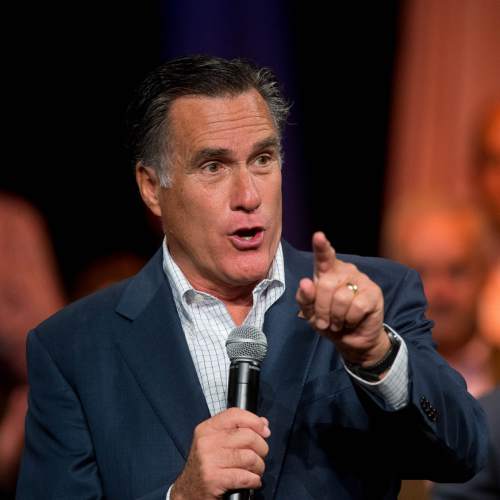This is an archived article that was published on sltrib.com in 2015, and information in the article may be outdated. It is provided only for personal research purposes and may not be reprinted.
A bill to allow a presidential primary in Utah next year passed out of committee on Thursday, a day after Mitt Romney urged state leaders to create one.
But Utah Republican Party Chairman James Evans said his party will skip it anyway, and hold a caucus instead — where Republicans would gather in neighborhood meetings to discuss candidates and vote. He said his party plans to allow voters to skip the meetings and vote online if they choose.
Evans said an average of 200,000 Republicans voted in the last three major presidential primaries in Utah. "Frankly, we think we can beat that" with a caucus, he said.
Romney disagrees. He wrote to legislative leaders a day earlier saying if a caucus were held, "Tens of thousands fewer voters will participate in the process. It is a bad decision."
The 2012 GOP presidential nominee attacked GOP plans for a caucus writing that "is indicative of an unfortunate pattern where party leadership seems to reject wide participation in favor of small groups of people making decisions for the rest of us."
Evans still supported HB329 — which passed 7-1 in the House Government Operations Committee — saying he did not want to hinder the ability of other parties to hold a primary on March 22, as the bill would allow if $3 million is appropriated. That is the same day the GOP plans its presidential caucus.
Matt Lyon, former executive director of the Democratic Party, supported allowing a primary, testifying it would "give people an easy access and the right to vote for president of the United States, the largest and most important office that we all vote for. "
He added he hopes "Republicans will choose to participate in the primary."
Rep. Jon Cox, R-Ephraim, sponsor of the bill, noted that Utah law currently allows presidential primaries either on the first Tuesday in February or the fourth Tuesday in June. Those dates are either too early or too late to comply with rules of national parties, which would reduce Utah's delegates if they vote on those dates.
His bill would move the date to the fourth Tuesday in March, and allow parties to participate if they choose and if lawmakers fund the election. Also, it would create a pilot project to allow some voters to cast ballots online, including the disabled and members of the military serving abroad.
Cox said that small pilot project would help the state figure how and whether to move to online voting for all voters in the future.





